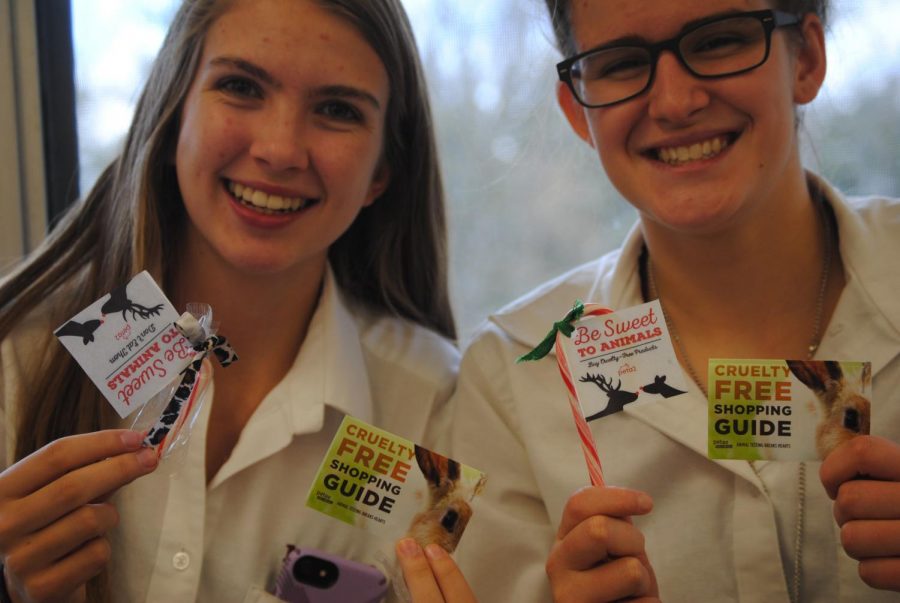Holidays with heart
Animal Rights Club recommends ditching animal-tested products for Christmas
At the final club meeting of the semester, Animal Rights Club offered advice for finding a gift for every person on a Mercy girl’s list this season—with a humane twist. With a suggestion of gifts guaranteed to keep everyone on the nice list, the club is dedicated to avoiding support for companies that test on animals.
“The holidays are an especially important time to be aware [of products tested on animals] because everyone is buying gifts,” said co-founder and co-president senior Makena Duval. “People need to be aware of what cosmetic brands they are buying because many people do not know what is happening behind the scenes when making these products.”
A presentation demonstrating the cruelty of animal testing and the ability of major companies to disobey national regulations through outsourcing and deceptive strategies was shared among members. Gift guides offering suggestions for eco- and animal-friendly products were also distributed.
“Over 100 million animals are killed in animal testing labs each year,” said Duval. “That really says something about what is happening behind the scenes of many brands.”
For Animal Rights Club, making others aware of what truly goes into each tube of mascara or bottle of lotion is the best way to work toward respect for animals. Checking for a small cruelty-free symbol on a product’s packaging or researching online can quickly reveal the methods used by a particular company.
“The significance of purchasing products that are not tested on animals is knowing that you are not paying these company to continue cruel and unnecessary lab tests on poor and helpless animals,” said Duval. “Knowing that you are giving the money to companies that understand and support the cruelty-free lifestyle and the overall welfare of animals is the best part.”
While the club itself is up to date on events sponsored by organizations like PETA and individuals who work to research companies, club leaders insist that anybody can play a part in supporting companies that don’t test on animals.
“You don’t need to completely restart your whole [cosmetics] collection,” said Duval. “Do your part by researching cruelty-free alternatives, start slow, and grow your cruelty-free product collection—also, tell your friends about the cruelty-free alternatives, and feel happy because you’re helping to save animals.”

